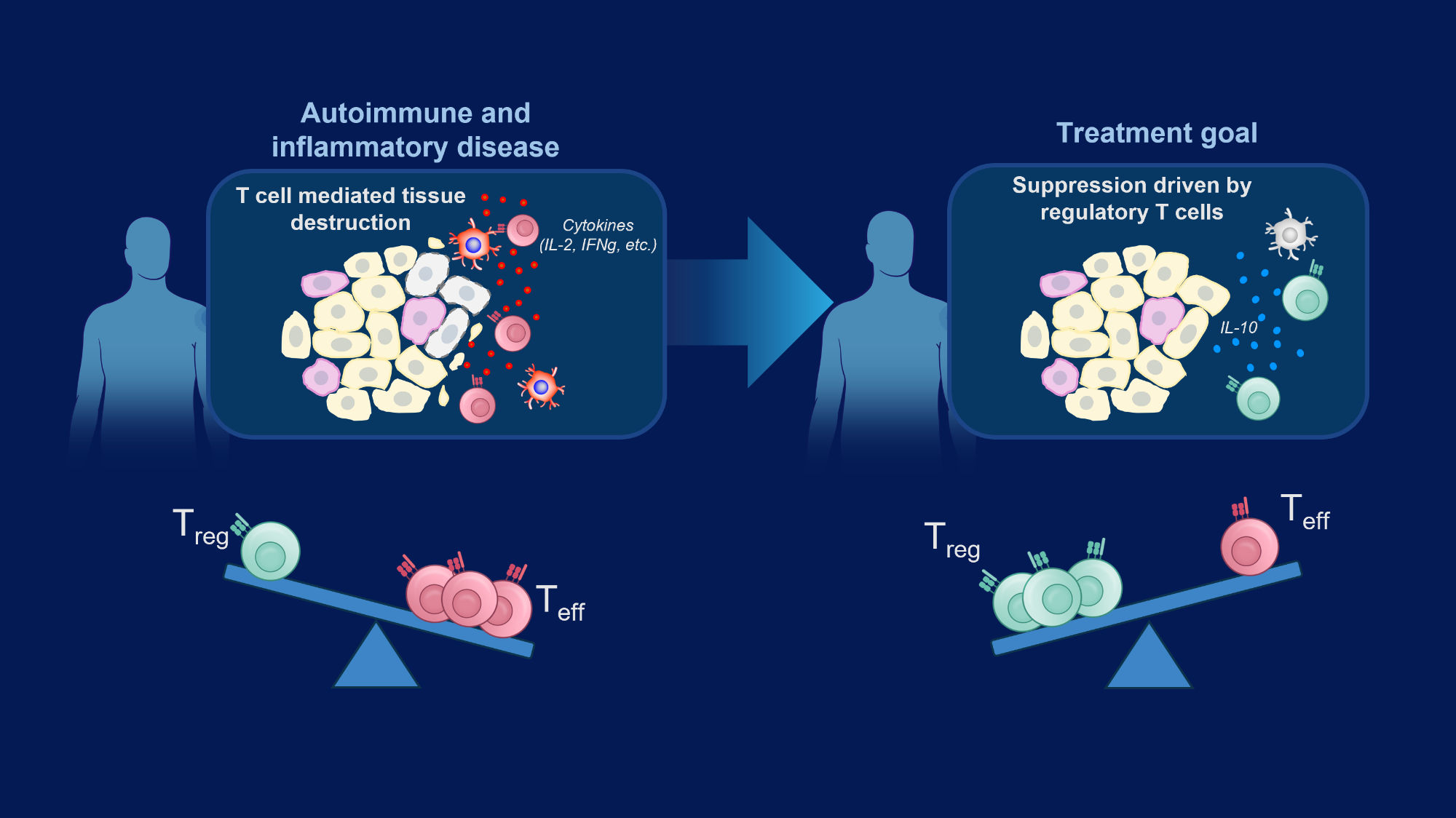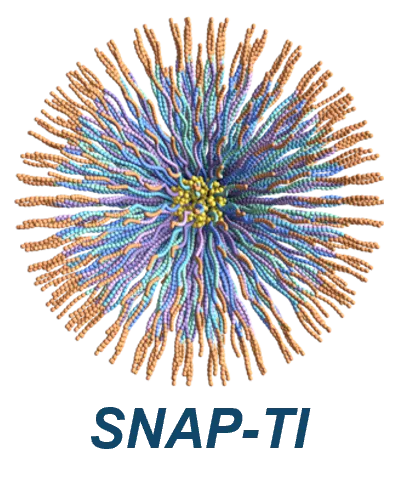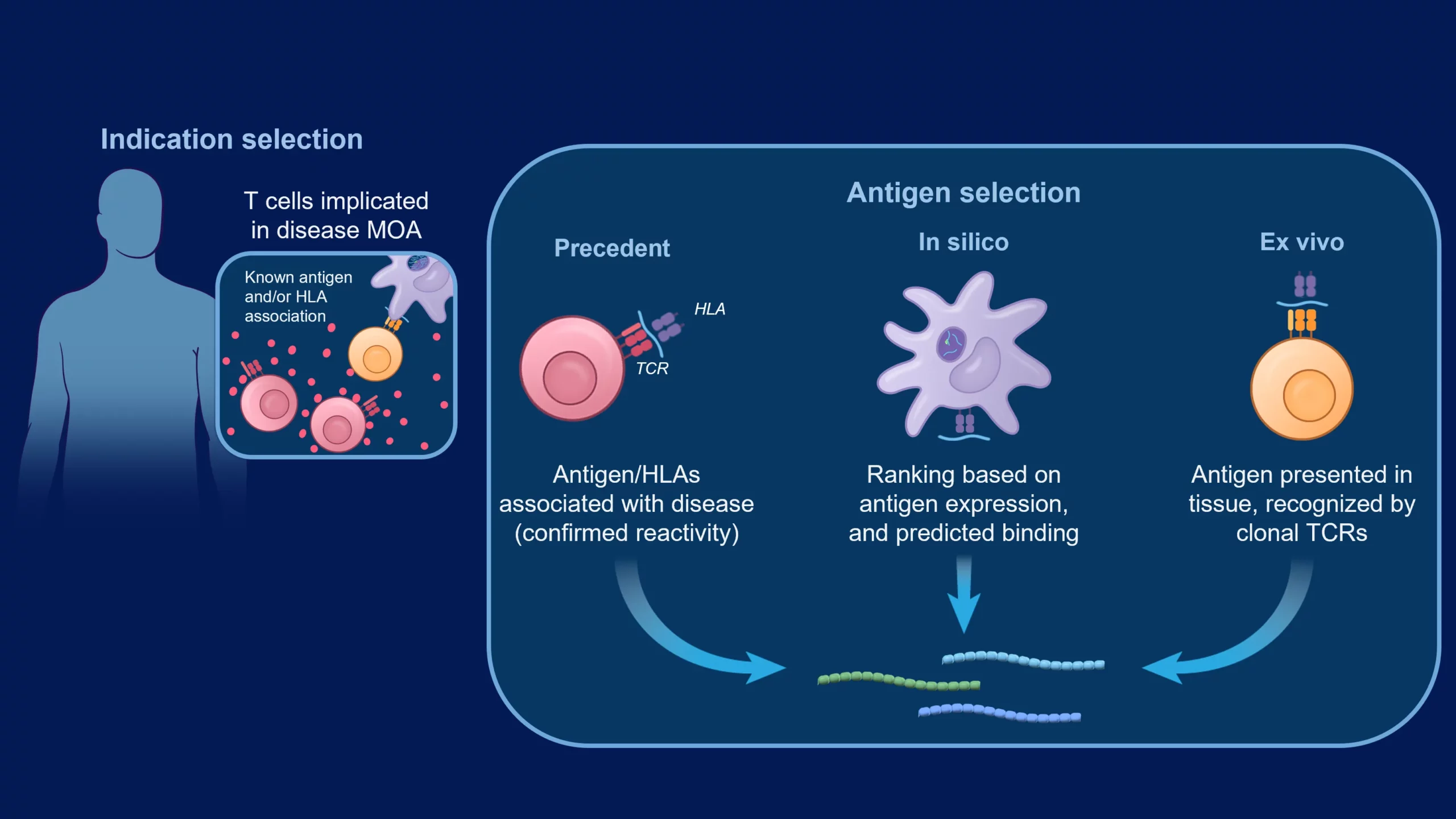Tolerance Immunotherapies
Autoimmunity and other inflammatory diseases can arise due to an imbalance in the immune system.

Inflammatory diseases including autoimmunity, allergies, and transplant rejection are characterized by an inappropriate or overactive immune response caused by an immune system imbalance. T effector (Teff) cells that normally fight infections and cancer inappropriately attack the body and overwhelm the regulatory T (Treg) cells that are meant to prevent inflammation.
Need for improved therapies
Antigens as targets for treatment
Our approach to treatment

Barinthus Bio aims to directly address the disease process underlying autoimmunity and other inflammatory diseases by developing antigen-specific immune tolerance therapies based on our proprietary SNAP-TI technology platform. Our approach is to use SNAP-TI to provide the immune system with problematic antigens within an appropriate tolerogenic context that promotes a reduction in Teff cells and increase in Treg cells, aiming to restore the natural state of immune tolerance and control over disease.
Our approach to indication and antigen selection

For each indication, we undertake a rigorous antigen selection process to identify key antigens that are recognized by Teff cells involved in disease pathology or present in disease tissue that may be helpful for inducing bystander Tregs. Our pipeline integrates clinical precedent, in silico bioinformatics and ex vivo screening of candidate antigens with patient derived Teff cells. The result of this screening process is the selection of antigens to include in SNAP-TI with the aim of inducing antigen-specific immune tolerance tailored to the specific disease indication.
